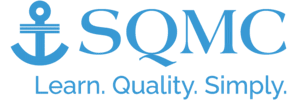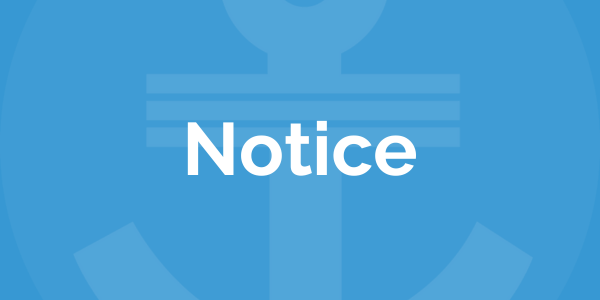Karen MacKenzie's Address to CQI WofS on ISO 45001 (December 2018)
 Communications
·
3 minute read
Communications
·
3 minute read
One year on from Karen's presentation on the Changes to Health and Safety Systems (December 2018) for the West of Scotland Chartered Quality Institute, we are releasing the slides for free public access.
1. Health & Safety Systems: What has Changed? (OHSAS 18001 to ISO 45001) An address to the Chartered Quality Institute (West of Scotland branch) by Karen MacKenzie MCQI; CQP; MASQ; FCIPD; IRCA Principal Auditor www.sqmc.org/training/occupational-health-and-safety-courses December 2018
2. The journey from OHSAS 18001:2007 to ISO 45001:2018
3. The purpose of ISO 45001:2018…. Is to help you create an Occupational Health & Safety Management System based on minimising occupational risks and improving the health and safety of workers and overall working conditions. For these reasons, your organisation must provide your workers with a safe and healthy work environment, proactively anticipating the possible occurrence of incidents and avoiding any harm or injuries.
4. Major differences between OHSAS 18001 and ISO 45001 ISO 45001 is process-based – OHSAS 18001 is procedure based ISO 45001 is dynamic in all clauses – OHSAS 18001 is not ISO 45001 considers both risk and opportunities – OHSAS 18001 deals exclusively with risk ISO 45001 includes the views of interested parties – OHSAS 18001 does not
5. A SIGNIFICANT SHIFT…… These points represent a significant shift in the way H&S management is perceived. OH&S is no longer treated as a “stand alone” but must be viewed within the perspective of running a sound and sustainable organisation. This change is driven by Annex SL, and brings International Management Systems into alignment with each other (e.g. Quality, Environmental and Health & Safety).
6. 18001 and 45001 differ in approach…. Nonetheless, a management system established in accordance with OHSAS 18001 will be a solid platform for migrating to ISO 45001
7. What does ISO 45001 look like? The new standard is based on the common elements found in all ISO management systems standards and is also based on the P-D-C-A (Plan-Do-Check-Act) model, allowing organisations to plan what they need to do to minimise the risk of harm. The measures they implement should also address concerns that lead to long term health issues and absence from work, as well as those that give rise to accidents.
8. Specific Changes….. Context of the organisation – you must consider the internal and external issues relevant to your organisation’s purpose, its strategic direction and its ability to achieve the intended results of the Occupational Health and Safety (OH&S Management System. Defining scope – since it is focused on running a sound and sustainable organisation, the scope will be more closely aligned with scopes of other management systems. Numbering (e.g. operational control in 18001 is 4.4.6 and in 45001 it is 8.1 to align with 14001 and 9001)
9. The Management System, Leadership, Worker Participation and Consultation…. • The new standard calls for leaders to be active and responsible, rather than the more passive role that could be interpreted from the previous standard. • For example, making decisions on issues like risk assessment topics will now be almost impossible without strategic leadership advice, except in the instance of responding to an incident.
10. Planning and actions to address risks and opportunities…… Risk-based thinking is the ‘hottest’ change compared to 18001 and identifying risks has to include business risks. Risks and opportunities now need to be considered for all aspects of the OH&S Management System, including all compliance issues and even the context of the organisation.
11. More about authority and ability to exercise control and influence….. The OH&S Policy is not a new document, but it must be clearly aligned with the context and the strategic direction of the organisation. This is one of the places where top management can demonstrate their leadership, creating a policy that expresses commitment to continual improvement, compliance with legal requirements and conformance with management system requirements
12. OH&S Objectives and how to achieve them…. • Objectives are established to maintain and improve OH&S performance. • 45001 contains a separate clause for planning and is more structured; it should involve integration with other business processes, such as business continuity, risk, financial and human resources etc.
13. Information, communication and documentation….. Greater emphasis on process rather than on procedures
14. Operation and the management of change….. A clause on management of change has been added, thereby according high importance to this process. The term hierarchy of controls is still used, but the phrase used in other parts of the document is ‘eliminate hazards and reduce OH&S risks’. •More elaborate planning is required now.
15. Monitoring activities and determining the effectiveness of such activities….. Requirements are more specific., such as monitoring and measurement of:- Legal requirements Operations related to hazards, risks and opportunities Frequency and methods have been made part of the (monitoring and measuring) requirements
16. And finally….internal audit and management review Management System First and last in the Management System
17. Summary….. a 12 step transition process Identify and assess Identify and assess hazards Assess Assess risks and opportunities Demonstrate Demonstrate leadership Review Review the scope of the OH&S management system List List all interested parties Identify Identify the context of the organisation
18. Summary….. a 12 step transition process continued Evaluate Evaluate OH&S performance Establish Establish operational controls Control Control documented information Set Set OH&S objectives and plans for achieving them Plan Plan actions Determine Determine the compliance obligations.



